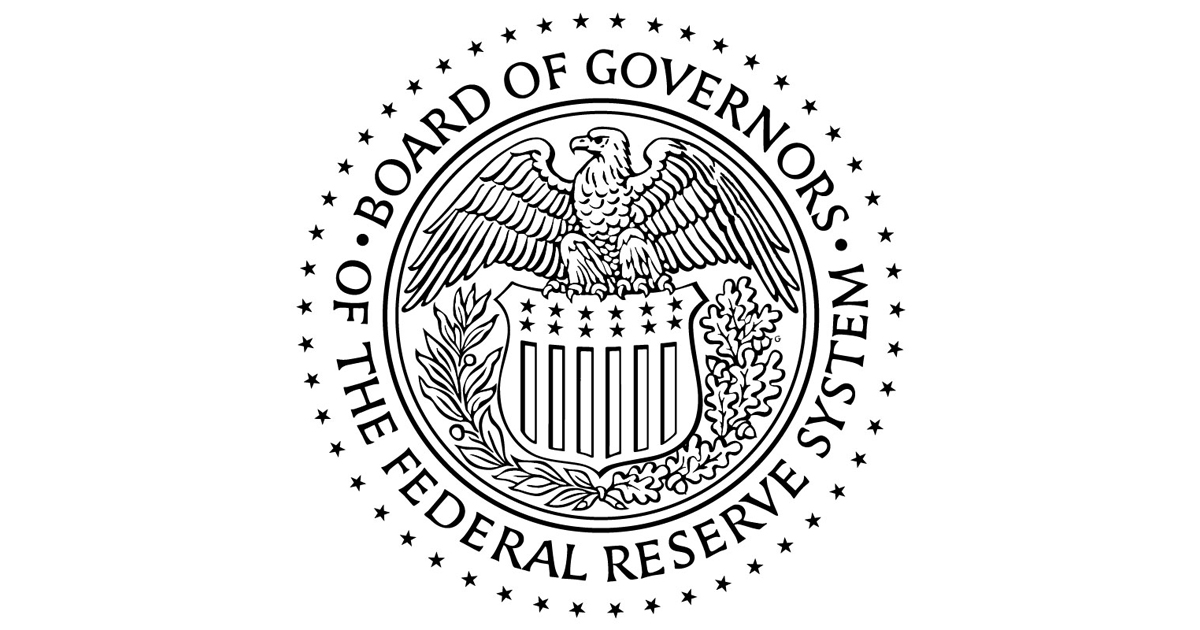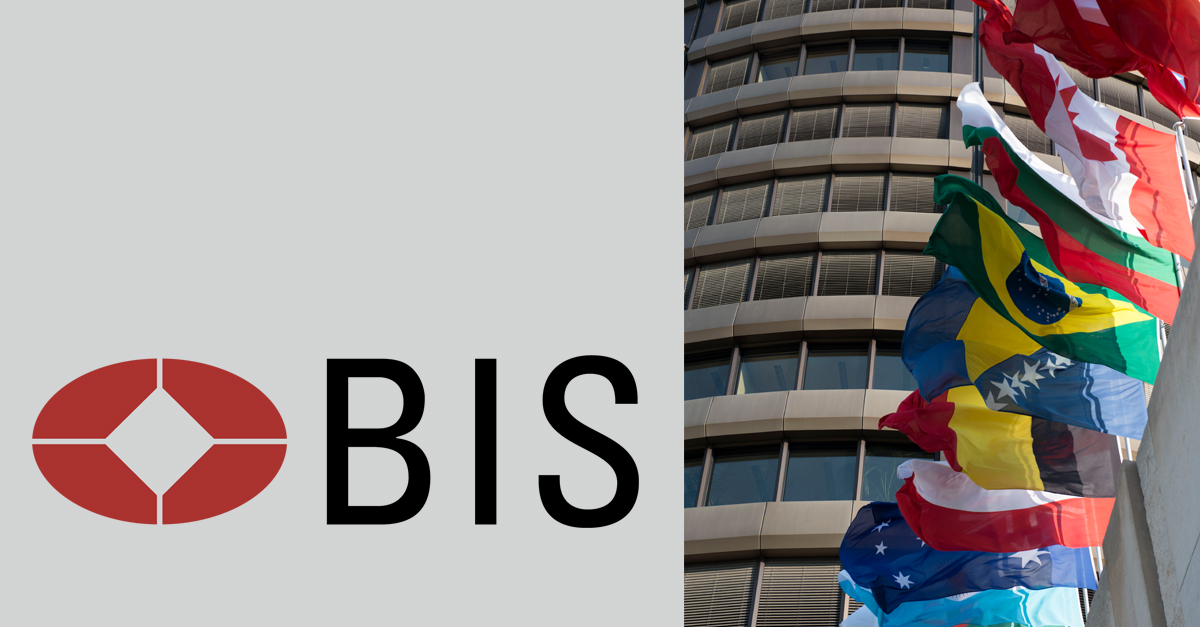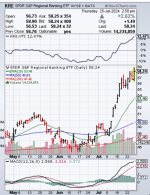You are using an out of date browser. It may not display this or other websites correctly.
You should upgrade or use an alternative browser.
You should upgrade or use an alternative browser.
No banks are safe (bail ins, FDIC limits, systemic risks)
Welcome to the Precious Metals Bug Forums
Welcome to the PMBug forums - a watering hole for folks interested in gold, silver, precious metals, sound money, investing, market and economic news, central bank monetary policies, politics and more.
Why not register an account and join the discussions? When you register an account and log in, you may enjoy additional benefits including no Google ads, market data/charts, access to trade/barter with the community and much more. Registering an account is free - you have nothing to lose!
- Messages
- 19,025
- Reaction score
- 11,432
- Points
- 288
The Fund Created to Unwind a Failing Megabank Has a Problem: There’s No Money in It
By Pam Martens and Russ Martens: July 9, 2024 ~Last week the American Banker published an opinion article by Arthur E. Wilmarth, Jr., the Professor Emeritus of Law at George Washington University. Wilmarth is the man who wrote the seminal book on the continuing threat to financial stability posed by U.S. megabanks – the same ones that blew up Wall Street and the U.S. economy in 2008.
more
The Fund Created to Unwind a Failing Megabank Has a Problem: There’s No Money in It
By Pam Martens and Russ Martens: July 9, 2024 ~ Last week the American Banker published an opinion article by Arthur E. Wilmarth, Jr., the Professor
wallstreetonparade.com
This post may contain affiliate links for which PM Bug gold and silver discussion forum may be compensated.
Ho Lees Hit
Psyop agitprop.
This is CHY-NUH. Where Coe-Vidd struck down healthy people on the streets, by the thousands. Where we got videos of stacks of bodies in makeshift morgues - occasionally sitting up or blinking.
It's ALSO the place where people RUSH to put their money into GOLD. They don't trust banks, and they aren't allowed to buy stocks. So they buy land and gold.
And for that reason, they may think they're better-enough off, to start bank runs...IN THE WEST.
To me this seems a ploy to gin up panic in Europe and America. It's no secret that our house of cards is starting to shake...they want it DOWN.
- Messages
- 35,680
- Reaction score
- 6,129
- Points
- 288
If interested I posted a vid about Schwab here:

 www.pmbug.com
www.pmbug.com
Like to read:

 www.investopedia.com
www.investopedia.com
Savers Need To Get Paid Again
Revealed: The Hidden Message in the Horrible 30 Year Treasury Bond Auction Nov 10, 2023 10:33 Thursday's 30 Year Treasury Bond Auction was horrible by all measures. The higher interest rate and lack of foreign buyers may signal that long term Treasury Bond interest rates have a lot higher to...
Like to read:

Charles Schwab Stock Sinks as CEO Says Bank Will Get 'Smaller'
Charles Schwab shares tumbled in intraday trading Tuesday after CEO Walt Bettinger said in an earnings call that its bank plans to downsize in order to maintain profitability.
- Messages
- 19,025
- Reaction score
- 11,432
- Points
- 288
- Messages
- 19,025
- Reaction score
- 11,432
- Points
- 288
JPMorgan Chase, Wells Fargo and Bank of America Refuse To Reimburse $880,000,000 To Customers, Accused of ‘Repeated, Relentless Failure’ To Protect Victims of Fraud

A US Senate investigation is shedding light on just how often America’s big banks refuse to reimburse victims of fraud.
The Permanent Subcommittee on Investigations says JPMorgan Chase, Wells Fargo and Bank of America collectively refused to reimburse $880 million in Zelle transactions that customers reported as fraud between 2021 and 2023.
Specifically, the banks refused to reimburse $320 million to customers who were hit by unauthorized transactions – and rejected an additional $560 million in reimbursement to customers who were tricked into authorizing an illicit transaction.
The new numbers are the centerpiece of the subcommittee’s report on Zelle’s practices, entitled “A Fast and Easy Way To Lose Money: Insufficient Consumer Protection on the Zelle Network.”
The report says the percentage of consumers reimbursed for disputed Zelle transactions at the three major banks has plummeted from 62% in 2019 to 38% in 2023.
It also raises concerns about potential age bias and vulnerabilities, finding customers under 35 years-old were reimbursed at lower rates than older consumers across Zelle.
more

JPMorgan Chase, Wells Fargo and Bank of America Refuse To Reimburse $880,000,000 To Customers, Accused of 'Repeated, Relentless Failure' To Protect Victims of Fraud: Report - The Daily Hodl
A US Senate investigation is shedding light on just how often America's big banks refuse to reimburse victims of fraud.
 dailyhodl.com
dailyhodl.com
- Messages
- 35,680
- Reaction score
- 6,129
- Points
- 288

Federal Reserve found ‘significant deficiencies’ in AML, Bank Secrecy compliance at Customers Bank
The Federal Reserve and Customers Bank filed a written agreement on Thursday, with a plan to disclose operations and crypto risk exposure.
- Messages
- 35,680
- Reaction score
- 6,129
- Points
- 288
Good read here. Only problem is where to put it. It will fit in here but could also fit in the Fiat Crimes thread. Well, I'm already here so wtf.
______________
The footage is grainy, but the shape of the plunging body is unmistakable. A middle-aged man dressed in a white shirt, dark grey trousers and black leather shoes falls directly down in a seated position, facing the wall of a medieval alleyway. As his legs hit the wet cobblestones below, his body bounces back a metre, then falls back with arms outstretched behind his head.
The time reads 7.59pm on March 6 2013. Over the next 22 minutes, the CCTV camera captures the head and arms writhing, eventually falling still. It takes nearly an hour for paramedics to arrive on the scene. During that time, two figures enter the cul-de-sac. One, wearing a blue puffer jacket and a light flat cap, approaches the body, apparently checking for signs of life. After a few moments, the pair slink away back into the shadows.
David Rossi was 51 when he died. He was the communications director at the oldest bank in the world, Monte dei Paschi di Siena, and the bank was under threat. A multibillion-euro scandal threatened to bring more than five and a half centuries of rich history to an end.
More:
How the world’s oldest bank brought a city to its knees
Monte dei Paschi has been Siena’s benefactor since 1472. But, in recent years, a multibillion-euro scandal in pursuit of aggressive growth has dealt it a crushing blow______________
The footage is grainy, but the shape of the plunging body is unmistakable. A middle-aged man dressed in a white shirt, dark grey trousers and black leather shoes falls directly down in a seated position, facing the wall of a medieval alleyway. As his legs hit the wet cobblestones below, his body bounces back a metre, then falls back with arms outstretched behind his head.
The time reads 7.59pm on March 6 2013. Over the next 22 minutes, the CCTV camera captures the head and arms writhing, eventually falling still. It takes nearly an hour for paramedics to arrive on the scene. During that time, two figures enter the cul-de-sac. One, wearing a blue puffer jacket and a light flat cap, approaches the body, apparently checking for signs of life. After a few moments, the pair slink away back into the shadows.
David Rossi was 51 when he died. He was the communications director at the oldest bank in the world, Monte dei Paschi di Siena, and the bank was under threat. A multibillion-euro scandal threatened to bring more than five and a half centuries of rich history to an end.
More:
- Messages
- 35,680
- Reaction score
- 6,129
- Points
- 288
DNE opinion piece, dyodd.
The top 8 safest banks for your money in the US (updated for 2024), what’s changed since last year's banking crisis, what's our view on Merrill Edge & E-Trade, plus what do the latest bank & credit union failure numbers tell us? Watch on & find out in our brand new 8 safest banks to keep your money for 2024!
16:29
SOURCES FOR TODAY'S VIDEO:
- https://www.fsb.org/2023/11/2023-list-of-global-systemically-important-banks-g-sibs/
- https://www.fdic.gov/resources/resolutions/bank-failures/in-brief/index
- https://ncua.gov/support-services/conservatorships-liquidations
Where We Keep Our Money | Top 8 Safest US Banks To Keep Your Money 2024
Aug 23, 2024 #jenniferlammer #bondbeginners #bondmastersThe top 8 safest banks for your money in the US (updated for 2024), what’s changed since last year's banking crisis, what's our view on Merrill Edge & E-Trade, plus what do the latest bank & credit union failure numbers tell us? Watch on & find out in our brand new 8 safest banks to keep your money for 2024!
16:29
SOURCES FOR TODAY'S VIDEO:
- https://www.fsb.org/2023/11/2023-list-of-global-systemically-important-banks-g-sibs/
- https://www.fdic.gov/resources/resolutions/bank-failures/in-brief/index
- https://ncua.gov/support-services/conservatorships-liquidations
Bank stocks soared today cause FED might lower rates a bit (though really bad for bankers) while insiders are leaking just how bad the situation is. Lol, something is gonna break big time.
- Messages
- 35,680
- Reaction score
- 6,129
- Points
- 288

USAA to Pay $64.2 Million to Service Members in Settlement over Improper Bank Fees, Interest
The San Antonio-based company moved to settle a three-year-old class-action suit over alleged violations of the Servicemembers Civil Relief Act.
... The U.S. Federal Reserve is considering a rule change that could save the country's eight largest banks combined billions of dollars in capital, in a potential long-sought win for the industry, according to four people with knowledge of the matter.
At issue is how the central bank calculates an extra layer of capital it imposes on U.S. global systemically important banks (GSIBs), known as the "GSIB surcharge," which it introduced in 2015 to boost their safety and soundness. ...
Following its stress test earlier this year, the Federal Reserve Board on Wednesday announced final individual capital requirements for all large banks, effective on October 1.
Large bank capital requirements are informed by the Board's stress test results, which provide a risk-sensitive and forward-looking assessment of capital needs. The table shows each bank's common equity tier 1 capital requirement, which is made up of several components, including:
- The minimum capital requirement, which is the same for each bank and is 4.5 percent;
- The stress capital buffer requirement, which is based in part on the stress test results and is at least 2.5 percent; and
- If applicable, a capital surcharge for the largest and most complex banks, which is updated in the first quarter of each year to account for the overall systemic risk of each of these banks.
If a bank's capital dips below its total requirement announced today, the bank is subject to automatic restrictions on both capital distributions and discretionary bonus payments.
Also today, the Board announced that it had modified the stress capital buffer requirement for Goldman Sachs, after the firm's request for reconsideration. Based on an analysis of additional information presented by the firm in its request, the Board determined it would be appropriate to adjust the treatment of particular historical expenses incurred by the bank in the stress testing models' input data, due to the non-recurring nature of those expenses. As a result, the bank's stress capital buffer requirement has been adjusted to 6.2 percent from a preliminary 6.4 percent.
The Board is focused on continuously improving the stress testing framework. To that end, the Board will analyze whether to revise regulatory reporting forms to better capture these types of data and to explore possible refinements to certain model components.

Federal Reserve Board announces final individual capital requirements for all large banks, effective on October 1
Following its stress test earlier this year, the Federal Reserve Board on Wednesday announced final individual capital requirements for all large banks, effect
www.federalreserve.gov
- Messages
- 35,680
- Reaction score
- 6,129
- Points
- 288
Fed's Barr unveils sweeping bank capital plan changes after pushback, delays
- Regulators to reissue draft for more industry feedback
- Wall Street banks say more capital unnecessary
- Banking industry has threatened litigation
- Basel rule may not be finalized before Nov. 5 election
In a speech to the Brookings Institution, Fed Vice Chair for Supervision Michael Barr said regulators will re-issue watered-down drafts of the "Basel Endgame" rule and a separate capital rule for global banks, bowing to Wall Street lenders which have aggressively lobbied to weaken them.
More:
More capital ... LOL... ya more than 0% capital is waay too much.
- Messages
- 35,680
- Reaction score
- 6,129
- Points
- 288
Bank of England eyes growth with lighter bank capital reforms for UK lenders
- BoE revises approach to mortgage, small business lending
- New rules pushed back to Jan. 1, 2026, to aid implementation
- Reeves says reforms will help banks support growth, investment
In a speech published on Thursday, the regulatory arm of the central bank said it would make "substantial amendments" to some earlier proposed Basel bank capital reforms following consultation and evidence, which had highlighted "too much conservatism" and excessive costs or challenges to implementation.
More:
- Messages
- 35,680
- Reaction score
- 6,129
- Points
- 288
Well Fargo's new regulatory trouble may delay asset cap removal timeline, analysts say
Sept 13 (Reuters) - Wells Fargo's (WFC.N), opens new tab latest regulatory setback could delay the timeline for lifting the asset cap imposed by the U.S. Federal Reserve and stifle its growth, Wall Street analysts said on Friday.Its ability to expand into risky businesses was restricted on Thursday by a U.S. banking regulator that found the California-based lender had weak safeguards against money laundering and other illegal transactions.
Though the Office of the Comptroller of the Currency (OCC) did not fine the bank as it was working to fix the problems, analysts said the action could hurt its effort to tackle regulatory issues stemming from the 2016 fake accounts scandal.
"Although an enforcement action against a bank for AML (anti-money laundering) policies and procedures is unfortunately not that uncommon, it is unique for WFC as it adds uncertainties to the timeline of the asset cap and their expense outlook," KBW analysts, led by David Konrad, said in a note.
More:
- Messages
- 19,025
- Reaction score
- 11,432
- Points
- 288
Most folks have no clue what this means...
 Unprecedented: Russia pays 44% of its imports in rubles
Unprecedented: Russia pays 44% of its imports in rubles
36% of Russian imports are settled in currencies of friendly nations, with only 20% using "toxic" currencies, according to the data from the Russian Central Bank analyzed by Sputnik.
This shift towards the ruble is driven by a significant increase in its usage in transactions with:
 Africa, where it has reached 76% (up from 54% in June);
Africa, where it has reached 76% (up from 54% in June);
 Asia, with 40%;
Asia, with 40%;
 The Caribbean, with 22%.
The Caribbean, with 22%.
On the export side, the ruble is used in:
 99% of transactions with the Caribbean;
99% of transactions with the Caribbean;
 81% of payments with Oceania;
81% of payments with Oceania;
 80% of operations with Africa;
80% of operations with Africa;
 66% of transactions with Europe.
66% of transactions with Europe.
For over two years, Russia has been strategically shifting its trade towards the ruble and the currencies of its friendly countries. This effort has effectively dethroned the dollar and euro, which were the dominant currencies used in transactions before February 2022.
Subscribe to @sputnik_africa
 TikTok (https://www.tiktok.com/@sputnik.africa) | Sputnik Africa (https://en.sputniknews.africa/)
TikTok (https://www.tiktok.com/@sputnik.africa) | Sputnik Africa (https://en.sputniknews.africa/) 
36% of Russian imports are settled in currencies of friendly nations, with only 20% using "toxic" currencies, according to the data from the Russian Central Bank analyzed by Sputnik.
This shift towards the ruble is driven by a significant increase in its usage in transactions with:
On the export side, the ruble is used in:
For over two years, Russia has been strategically shifting its trade towards the ruble and the currencies of its friendly countries. This effort has effectively dethroned the dollar and euro, which were the dominant currencies used in transactions before February 2022.
Subscribe to @sputnik_africa
- Messages
- 35,680
- Reaction score
- 6,129
- Points
- 288
TD Bank Resolves Treasuries Spoofing Case Amid Wider US Probes
(Bloomberg) -- Toronto-Dominion Bank will pay more than $20 million as part of a deal with US prosecutors and regulators to resolve investigations over a former trader’s alleged placement of “spoof” orders to manipulate the US Treasuries market.Most Read from BloombergA 7,000-Year-Old City...
- Messages
- 19,025
- Reaction score
- 11,432
- Points
- 288

Force1Ltd on GETTR : The American government is financed by treasury bonds. And who buys treasury bonds? Mainly the Fed. And how does the Fed buy them?...
The American government is financed by treasury bonds. And who buys treasury bonds? Mainly the Fed. And how does the Fed buy them? By printing money. But what backing does the Fed have to print that money? The treasury bonds themselves. So basically, they fund the government by printing money...
- Messages
- 35,680
- Reaction score
- 6,129
- Points
- 288
TD Bank pleads guilty in money laundering case, will pay $3 billion in penalties
- TD Bank pleaded guilty in a criminal money laundering case and agreed to pay a whopping $3 billion in fines and other penalties to the Department of Justice and federal financial regulators to settle a probe over its failure to monitor money laundering by drug cartels.
- TD Bank is also set to accept limits on its growth as part of the settlement.
- The restrictions on TD Bank's growth would be similar to those imposed by the Federal Reserve on Wells Fargo in 2018.
More:
- Messages
- 19,025
- Reaction score
- 11,432
- Points
- 288
Folks here are prepped (?) or better be if not. Have cash on had if the banks shut down because they're already bankrupt.
50m - listen at 1.75x faster.
Bix Weir - The Good Guys Are About To Change The Economic System, Buckle Up It’s Going To Get Bumpy
Bix begins the conversation talking about the economy. The [CB] are destroying their old system and the good guys are preparing and ready to bring in the new system. Trump said Jamie Dimon endorsed him, he did this on purpose because when the system falls apart Dimon will most likely ask Trump to save him. The system will be moving back to sound money and the constitution, the control of the creation of currency will taken away from the [CB]. It will be bumpy so buckle up and get prepared.50m - listen at 1.75x faster.
- Messages
- 19,025
- Reaction score
- 11,432
- Points
- 288
Oklahoma Bank Fails-FDIC Initially Makes Only 50 Percent of Funds Available to Uninsured Depositors-Last Year ALL Uninsured Depositors of Silicon Valley Bank Were Bailed Out
The Office of the Comptroller of the Currency (OCC) along with the Federal Deposit Insurance Corporation (FDIC) appointed as receiver closed The First National Bank of Lindsay in Oklahoma On Friday October 18, 2024.After alleged bogus and disingenuous bank documents were identified, the OCC exposed other findings that uncovered deficiency in the banks’ capital. The assets of the institution were lessor than its creditor obligations.
It is reported that the FDIC has made the following statement:
…’For uninsured deposits, the FDIC has announced it will make 50 percent of those funds available to depositors starting Monday, October 21, 2024, with the possibility of increasing that amount as assets from the failed bank are sold. …(News 9)
Read more here...
- Messages
- 35,680
- Reaction score
- 6,129
- Points
- 288
Regulators Won’t Stop Big Bank Malfeasance
The regulators tasked with keeping the banking industry on the straight and narrow are part of the problem.
- Messages
- 35,680
- Reaction score
- 6,129
- Points
- 288

Charting the course: prudential regulation and supervision for smooth sailing
Keynote speech by Erik Thedéen, Chair of the Basel Committee on Banking Supervision and Governor of Sveriges Riksbank, at the Institute of International Finance Annual Membership Meeting, Washington DC, 23 October 2024.
FDIC honcho faces Senate panel today...
He's gone. And replaced with a DEI hire who has Absolutely ZERO knowledge of the industry. Just in time for the disaster.
Apparently, Gruenberg is still there...
- Messages
- 35,680
- Reaction score
- 6,129
- Points
- 288

Why Do Banks Fail? Three Facts About Failing Banks - Liberty Street Economics
A look at why U.S. banks fail, using a study of more than 5,000 bank failures to understand if they are caused by bank runs or deteriorating solvency.
libertystreeteconomics.newyorkfed.org
- Messages
- 35,680
- Reaction score
- 6,129
- Points
- 288
Whoops!
How thousands of Americans got caught in fintech’s false promise and lost access to bank accounts
PUBLISHED TUE, JUL 2 2024
KEY POINTS
- For customers, fintech promised the best of both worlds: The innovation, ease of use and fun of the newest apps combined with the safety of government-backed accounts held at real banks.
- The collapse of middleman Synapse has revealed fintech’s promise of safety as a mirage. More than 100,000 Americans with $265 million in deposits have been locked out of their accounts.
- The implications of this disaster may be far-reaching. The most popular banking apps in the country, including Block’s Cash App, PayPal and Chime, partner with banks instead of owning them.
- CNBC reached out to fintech customers whose lives have been upended by the Synapse debacle. They all believed their money was protected by an FDIC safety net.
Update.
‘I have no money’: Thousands of Americans see their savings vanish in Synapse fintech crisis
- Thousands of Americans will receive little or nothing from savings accounts that were locked during the collapse of fintech middleman Synapse.
- Customers believed the accounts were backed by the full faith and credit of the U.S. government.
- CNBC spoke to a dozen customers caught in the predicament, people who have lost sums ranging from $7,000 to well over $200,000.
- While there’s not yet a full tally of those left shortchanged, at fintech Yotta alone, 13,725 customers say they are being offered a combined $11.8 million despite putting in $64.9 million in deposits.
When she and her husband sold the house last year, they stowed away the proceeds, $282,153.87, in what they thought of as a safe place — an account at the savings startup Yotta held at a real bank.
More:
The Bank of England will hide the identities of any pension funds, insurers or hedge funds bailed out under a new financial stability tool to prevent a wider crisis engulfing the economy, Deputy Governor Dave Ramsden said.
The BOE has accepted submissions by so-called “shadow banks” that “revealing too much information could create stigma” about using the bail-out tool, which would undermine any rescue effort and risk creating more financial instability, he said in a speech on Monday.
The “systems changes are now all in place” for the new Contingent NBFI Repo Facility (CNRF) but the launch has been delayed slightly until the start of 2025, Ramsden said. The facility will operate as a backstop to the gilt market, which sits at the heart of all UK financial markets given its size and interconnectedness.
...

Identities of Shadow Banks That Use New BOE Tool to Be Secret
The Bank of England will hide the identities of any pension funds, insurers or hedge funds bailed out under a new financial stability tool to prevent a wider crisis engulfing the economy, Deputy Governor Dave Ramsden said.
No sunshine for you.

